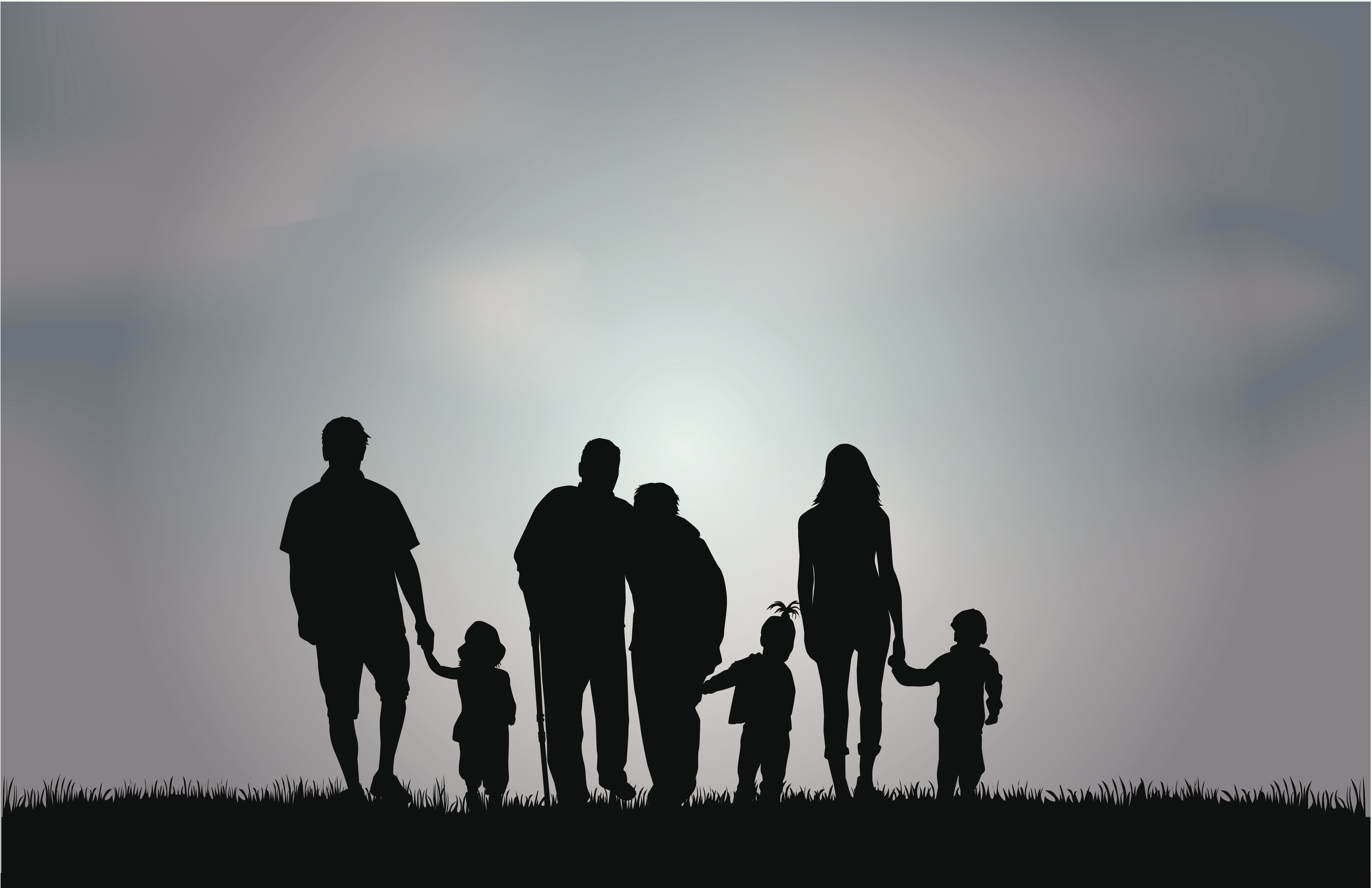The emotional struggle of being a parent while saying goodbye to your own
Our parents are dying. Our kids are growing. And we're stuck in the middle.


A free daily email with the biggest news stories of the day – and the best features from TheWeek.com
You are now subscribed
Your newsletter sign-up was successful
When my husband and I were a younger, newly married couple, the entirety of our discussions surrounding when to have children revolved around whether we were ready, financially and emotionally, to raise a child. What we didn't entirely realize was that postponing parenthood would ultimately result in our being forced to balance not just our kids and our careers, but caring for our ailing parents, as well.
Six years after our wedding — after a total of 12 years together — we finally started a family. And now, in addition to having two small children, we also have four elderly parents. There's a term for couples like us, for people juggling the duties of caring simultaneously for young children and aging parents: We're "The Sandwich Generation." Here we are, trapped between two demanding extremes, with not enough time or energy to give either one our all.
The thing about having small children, especially when they are very close in age, is that they are all-consuming. For a period of about three years, my husband and I lived in a fog of exhaustion and diapers. We were surviving, but that was all. And just when we were beginning to get our lives back on track, to get more than four hours of sleep at a time, and to feel like humans again, my mother-in-law fell ill. It started slowly, but as is typical with older people, it progressed quickly.
The Week
Escape your echo chamber. Get the facts behind the news, plus analysis from multiple perspectives.

Sign up for The Week's Free Newsletters
From our morning news briefing to a weekly Good News Newsletter, get the best of The Week delivered directly to your inbox.
From our morning news briefing to a weekly Good News Newsletter, get the best of The Week delivered directly to your inbox.
There are, of course, all the paperwork-type things that my husband and his siblings are dealing with: advanced directives, wills, trusts, medical bills, and the like. Those kind of items, while detailed and unpleasant, are simple enough. It's the emotional things, like making sure we all have enough time to spend with his mom, that poses the biggest problem. If there were no children in the mix, we would, most likely, visit her every day. At this point, it would be just to sit and watch TV while holding her hand or, when she's feeling up to it, to bring her popsicles. But the real hard truth is that caring for our children supersedes everything else. They need to be fed and taken to school and shuttled to extracurricular activities and put to bed at a reasonable hour. This means that one of us bears the brunt of the parenting work, while the other carries the heavy load of grief.
The roles are assigned, naturally, by whose parent happens to be ailing. This means that I am the one keeping our home life running as smoothly as possible. Recently, my husband slept at the hospital while I handled the parenting duties on the home front. I prepared meals, packed lunches, brushed hair, and kept our kids on their regular routine while he paced the ICU. I attended preschool graduation while he weighed in on decisions regarding hospice care. We've forgone attending school events in order to allow him to spend a few more hours with his mom. Gradually this has become our new normal, where middle-of-the-night calls and bedside vigils are the activities my husband handles instead of T-ball or birthday parties.
Over the past six months, his mom's health has declined, and the last-minute calls have become more frequent. It's almost impossible to make plans — specifically with regards to traveling, or purchasing advanced tickets to events — because we're never sure if we might be needed at her bedside. We've been living in a heightened state, on tenterhooks. There is an end in sight, albeit an unpleasant one. Then life will return to some altered state of "normal," where we'll perhaps be able to sleep through the night again, but where we'll also be figuring out what life looks like without the family matriarch.
My husband is a very hands-on dad, who normally spends as much time as possible playing with our kids. His increasing absence from our day-to-day home life has affected our children, who don't understand why daddy isn't home early in the morning, or why he can't read them a bedtime story each night. They want their daddy, and when he isn't there to toss them into the air or pretend to be their restaurant customer, they get frustrated. Three- and four-year-olds express frustration with tantrums and tears. Their reactions are totally age appropriate, but after months and months of being the sole tantrum-tamer, my patience is wearing thin. My fuse is shorter than it was just a few weeks ago, and I find myself snapping at my kids more often, rather than making a concerted effort to react calmly.
A free daily email with the biggest news stories of the day – and the best features from TheWeek.com
We're both exhausted; my husband emotionally, and me physically. I've taken on more and more of the hands-on parenting over the weeks as he struggles to manage work and spending as much time as possible with his mom (as he should). So we race to keep up with it all — to parent well, to be a good child, to maintain some semblance of professionalism at work — but it's draining. Therein lies the dichotomy of The Sandwich Generation: We watch the vibrant force of life pulse through our children, while that very same life force slowly ebbs out of our parents.
Anna Lane is a writer, editor, and public speaker with a focus on humor and parenting. Her work has appeared on The Stir, Scary Mommy, Domino, The Huffington Post, and other media outlets. She lives in Los Angeles with her two children, her husband, and a never-ending pile of laundry. Anna chronicles the ups and downs of parenting on her blog, Misadventures in Motherhood.
